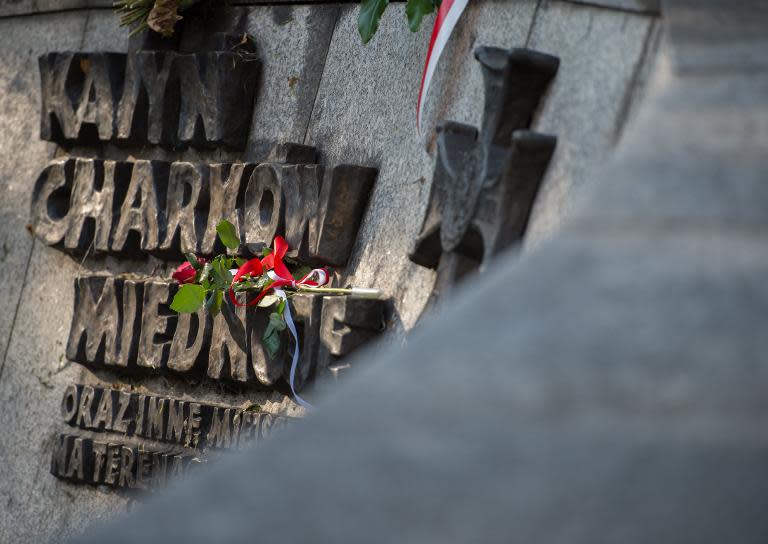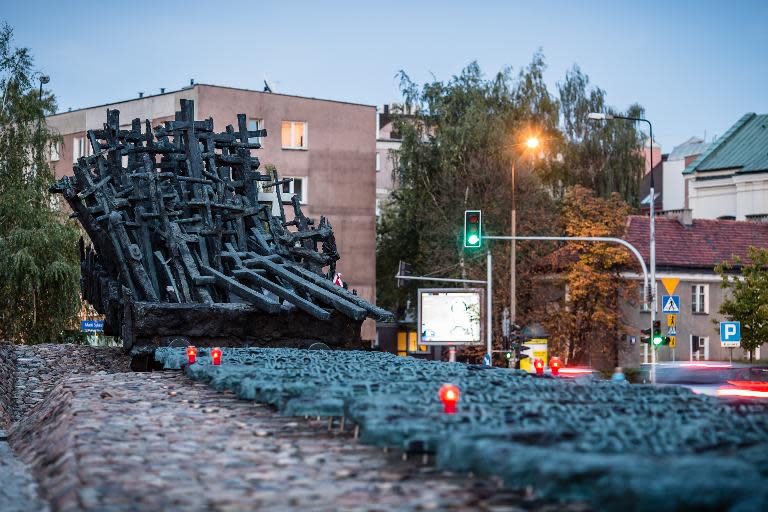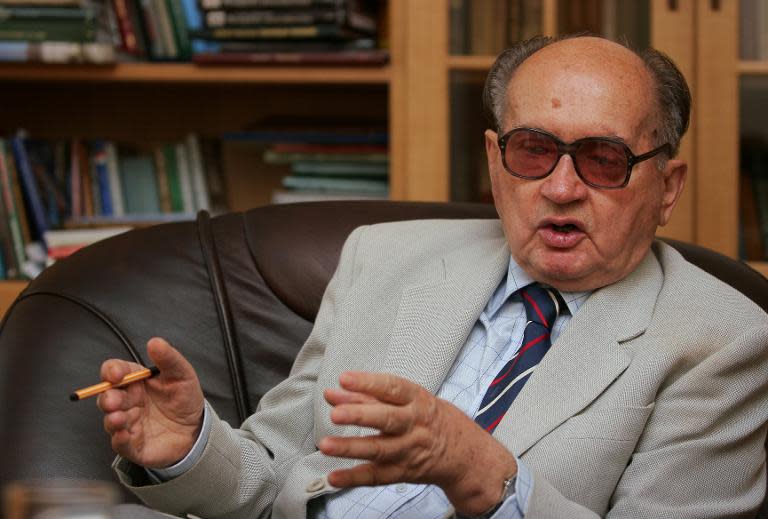Poland recalls dark side of WWII victory
Poland on Thursday marks 70 years since the end of World War II, with an emphasis on the dark side of history: that victory over Nazi Germany triggered 45 years of Soviet domination. The anniversary comes as relations between the Kremlin and the West sink to Cold War-era lows because of tensions over Russia's role in the Ukraine crisis and fears of its territorial ambitions. "The end of this war, which overturned German occupation, did not bring freedom to our part of Europe, because the countries here were subordinated against their will to Stalin's empire," Polish President Bronislaw Komorowski said in a weekend interview with the Gazeta Wyborcza daily. Seeking to hold European talks on the topic, Komorowski in January invited foreign leaders to mark the anniversary in Poland -- to coincide with a conference of German, Polish and Russian historians who have been meeting since 2009. Historical and political discussions will be held in the northern port city of Gdansk on May 7, followed by a midnight ceremony at nearby Westerplatte, where the first shots of the war were fired on September 1, 1939. Komorowski wanted participants to reflect on three anniversaries at once: 70 years since the victory over Nazi leader Adolf Hitler, 70 years since the Yalta conference where the West ceded a part of Europe -- including Poland -- to Stalin, and 25 years since the fall of communism. But the initiative has not gone over well in Russia. Senior Moscow officials immediately denounced the event, which they believe is meant to compete with their traditional Red Square military parade on May 9. To make matters worse, only a handful of world leaders are set to attend the Moscow ceremonies, as Western leaders are giving Russian President Vladimir Putin the cold shoulder over his role in the Ukraine conflict. However, Poland's Western allies may worry that sending their leaders to Gdansk could exacerbate relations with the Kremlin. So Komorowski has found himself about to preside over a gathering that is just a shadow of what he meant it to be. - Testing Russia - The Polish commemorations present a political risk to Komorowski, who is seeking a second term, with the first round of the presidential elections set for May 10. Speaking to the Gazeta Wyborcza, Komorowski defended his bid for a major event and said the presence of foreign leaders would be "an important testimony of our shared history, both today and in the future". "The overall conclusion will be important -- that Western Europe found an answer to the threat of war in integration, while those on the wrong side of the Iron Curtain had to wait until the 1990s. But the wait is over," he said. EU President Donald Tusk, a former Polish prime minister, and UN Secretary-General Ban Ki-moon will attend, Komorowski's office said. The presidents of Bulgaria, Croatia, Cyprus, the Czech Republic, Estonia, Lithuania, Romania, Ukraine and the Slovak prime minister have also accepted the invitation. France will send Defence Minister Jean-Yves Le Drian to the Polish commemorations and Germany will send former president Horst Koehler. One of the conference organisers -- which in past years has been held in Warsaw, Berlin and Moscow -- is Polish political scientist Slawomir Debski, director of the Centre for Polish-Russian Dialogue and Understanding. "There is a need for an open, public discussion about the anniversary of the end of the war but also of Yalta, in the context of the security crisis in Europe that is a result of Russian aggression in Ukraine," Debski told AFP. Most Poles respond favourably to any show of firmness towards the Kremlin, but Komorowski's commemorations have not won everyone over. Kazimierz Kik, head of the Institute of Political Sciences in the central Polish city of Kielce, believes that "to test Russia is to display irresponsibility". "We shouldn't link the two events," the historian and ex-Communist said, referring to victory over the Nazis and the Yalta conference. "Russia has its vested interests, like any other state, and whoever decides to ignore them should start by figuring out how much it's going to cost him."

 Yahoo Finance
Yahoo Finance 



